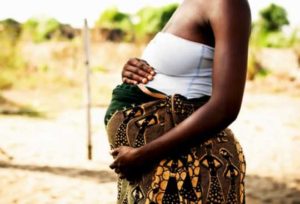Indigenous Women Empowerment Network Ghana to Reduce Maternal Deaths
- Health and WellbeingHealth Sector
- No Comment
- 317

Ms. Celestina Andoh, a dedicated health advocate and Executive Director of the Indigenous Women Empowerment Network Ghana, has brought attention to a pressing issue: approximately 830 women lose their lives every day due to complications related to pregnancy and childbirth.
These alarming numbers were revealed during a media interaction in Accra, where Ms. Andoh emphasized the urgency of addressing this critical maternal health crisis.
Disturbingly, almost 99 percent of these tragic maternal deaths occur in low-income countries (LICs), with sub-Saharan Africa, including Ghana, bearing a substantial burden. Ms. Andoh highlighted that yearly, around 22,800 women suffer fatalities from unsafe abortions, with a staggering proportion attributed to women and adolescent girls under the age of 25.
A crucial focus of Ms. Andoh’s message is the potential for modern Family Planning methods to save lives. By satisfying the unmet demand for these methods, it is estimated that up to 70,000 maternal deaths and 52 million unintended pregnancies could be averted annually. Ms. Andoh pointed out that postpartum hemorrhage (PPH) remains a prominent contributor to maternal mortality in low-income countries.
While acknowledging Ghana’s progress in curbing maternal and newborn deaths, Ms. Andoh underlined the challenges that persist. The country has witnessed a decline in maternal and neonatal mortality rates, with the 2022 institutional maternal mortality ratio standing at 102 per 100,000 live births and the institutional neonatal mortality rate dropping to 7 per 1,000 live births. However, the Executive Director emphasized that more work is required to ensure high-quality health services for mothers and newborns across the nation.
Ms. Andoh stressed the need for a united effort involving the Ministry of Health, nonprofit organizations, and private companies, particularly local transport providers. Such collaboration would enhance patient transport solutions and improve the supply chain for essential Maternal and Newborn Health medicines.
Ms. Andoh’s call aligns with a project her organization is executing in the Ada West District, aimed at enhancing sexual, maternal, and newborn health through community mobilization and advocacy.
Edward Ayabilah, Officer in-Charge of the Project, noted that while Ghana’s strides in maternal and child health are commendable, the Ada West district faces significant challenges. Limited access to essential services and deeply ingrained socio-cultural barriers contribute to preventable health issues. Ayabilah called upon all stakeholders, both state and non-state, to work together in addressing these disparities and ensuring quality healthcare access in the district.
As Ghana continues its journey towards the Sustainable Development Goal 3, targeting a reduction of global maternal mortality ratio to less than 70 per 100,000 live births by 2030, the efforts of individuals like Ms. Celestina Andoh and organizations like Indigenous Women Empowerment Network Ghana become paramount in driving positive change and saving countless lives.
By Seth Opoku Agyemang
https://newsghana.com.gh/indigenous-women-empowerment-network-ghana-to-reduce-maternal-deaths/


